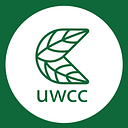Ocean Plastics: Is It Too Late?
By: Jacqueline Omdara
“At current rates plastic is expected to outweigh all the fish in the sea by 2050.” We may not see the immediate effects of our actions in polluting the Earth’s water but if we do not take action soon, we will cause irreversible effects on wildlife. Plastic is an organic polymer made from petroleum that DOES NOT decompose. Many plastics are produced for single-use items as it is cheap to manufacture. Over 300 million tons of plastic are produced every year and at least 8 million tons of it ends up in the oceans every year. Since plastics make up 80% of all marine debris (surface and deep-sea sediments), this is a great issue for marine life as many animals get entangled or ingest the plastic which could lead due injury or death. Much of the plastics that end up in the ocean comes from urban and storm runoff, illegal dumping, and tourists/beach visitors to just name a few.
Recent studies show that from the equator to the poles, there are approximately 15–51 trillion pieces of plastic in the world’s oceans. This is due to the fact that “every bit of plastic ever made still exists” according to EPA reports. Even though there are many initiatives in place, industries like the fossil fuels industry, plan to increase plastic production by 40% over the next decade. This is due to many large oil companies investing in building petrochemical plants to turn fracked gas into plastic. Some plastics may not even be as visible to you but still exists in the oceans and ecosystem. Natural factors such as solar UV radiation causes the plastic to turn into small particles known as microplastics (particles smaller than 5mm) or even nanoplastics (smaller than 100nm).
Read more about how various marine animals are impacted by plastic pollution HERE.
Nevertheless, it is not too late to make a change and recognize that ALL OF US can contribute to help. There are also many organizations and companies that should be recognized for their hard work and initiative to help decrease the rate of plastic pollution. There is currently an upwards trend of spreading awareness on the impact of plastic on marine life. On a global scale, the United Nations Environment Program (UNEP) officially considers plastic as a substance that is a main issue affecting the environment as it is able to transport harmful substances. Furthermore, in the Leaders’ Declaration, the risk of microplastics was recognized at the 2015 G7 summit.
Many companies that many of us regularly purchase from are also joining in on the mission to save the Earth by reducing plastics. A well-known company is McDonald’s. By 2025, all of McDonald’s locations will provide packaging and straws that are renewable, recycled, or certified sources. Similarly, Nestlé is aiming to have all of its product’s packaging 100% recyclable or reusable by 2025. IKEA has been promoting the elimination of plastic bags since 2008 with their iconic reusable blue bags that you can still purchase for an affordable price. (Next time you visit to get some IKEA meatballs or walk through their maze of endless showrooms, feel free to pick one up!)
Read more about other companies and their upcoming plans to reduce plastic waste HERE.
Here are some tips for reducing your plastic consumption! It is never too late to get started and every decision counts!
- Avoid single-use plastics (i.e. utensils, straws, take-out containers, etc)
- Shop wisely. If you are able to, buy in bulk to reduce the amount of packaged products. There are also local package-less/zero waste stores in which you bring your own container!
- Replace plastic Tupperware with glass or steel containers as plastic is not only more harmful to the Earth but also for your health!
- Support local businesses that promote sustainability and share with those around so that more people are aware of the importance of reducing plastic consumption
- Pay attention when throwing out your waste so that only the correct materials go in the recycling bin and remember to rinse out your recycled material so there is no residue (i.e. from food, drinks, etc)
For more tips check out this website HERE!
References
Corporativa, I. (n.d.). Reduce your plastic consumption and lessen its impact on the environment. Iberdrola. https://www.iberdrola.com/environment/how-to-reduce-plastic-use.
Marine plastics. IUCN. (2018, December 5). https://www.iucn.org/resources/issues-briefs/marine-plastics.
Ocean Plastics Pollution. (n.d.). https://www.biologicaldiversity.org/campaigns/ocean_plastics/.
West-Rosenthal, L. B. (2021, April 24). 22 Big Companies That Are Getting Rid of Plastic for Good. Reader’s Digest. https://www.rd.com/article/companies-getting-rid-plastic/.
